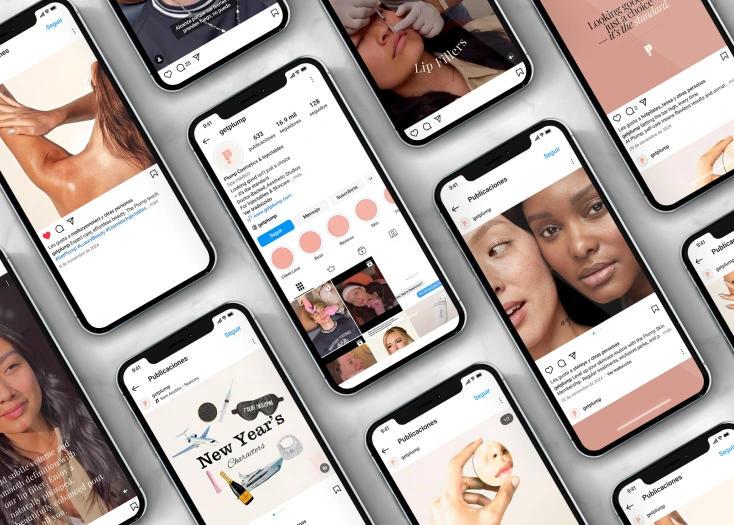Healthcare Social Media Marketing
Social Media for Medical Practices: A Challenge Most Can’t Handle Alone
Creating content that resonates with your audience is time-consuming. You need more than just visually appealing posts—you need a strategy that communicates your value, engages your audience, and positions your practice as a trusted authority. Our approach ensures consistent, high-quality content that builds lasting relationships.
Social Media Strategy That
Attracts, Engages, and Builds Your Brand
Know exactly where your money goes and how it performs. We deliver measurable ROI with transparent tracking, ensuring every campaign drives new patients directly to your practice.

We Handle the Hard Work of Social Media, So You Don’t Have To
We’ve designed a system that aligns seamlessly with your practice’s needs and time constraints.
Complete Content Planning
We take the stress out of content planning. With a complete, customized calendar delivered in advance, you’ll always know what’s next.
Patient-Focused Content
We create engaging posts that speak to your patients’ needs, build trust, and prompt action.
Custom Video Strategy
We handle video production with tailored scripts or regular videographer visits to capture your practice in action.
Multi-Platform Strategy
We optimize your presence across all platforms to reach your audience wherever they are.
Lead Generation
Our content is designed to drive consultations, not just likes, ensuring every post encourages potential patients to reach out.
We don’t just “do social media”—we create real results that impact your bottom line.
Build a Stronger Brand with Social Media
Let’s create a social media presence that elevates your practice and attracts the right patients.
Why Choose Us
Seamless Software Integration
As Part Of Our Comprehensive Solutions
Our software solutions work hand-in-hand with our services & your practice to deliver results and enhance efficiency.
Comprehensive Practice Management
Our software streamlines every aspect of your practice, including lead management, appointment scheduling, and patient communications, all through our HIPAA-Compliant CRM.
Custom-Tailored for Health Professionals
Specifically designed for the health and wellness industry, our software meets your practice’s unique needs and adheres to industry standards, providing robust and reliable functionality.
Data-Driven Growth
Our software provides actionable insights through real-time analytics, enabling you to track performance, optimize workflows, and achieve measurable growth for your practice.









